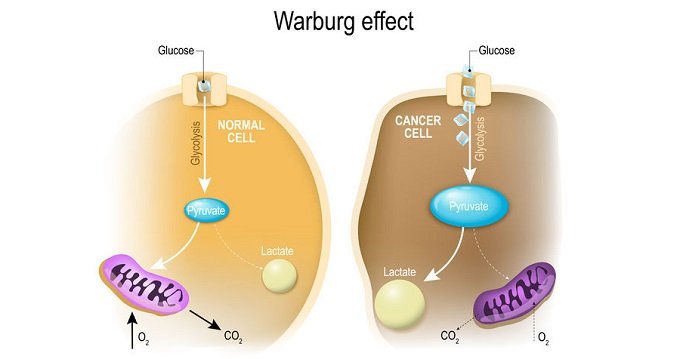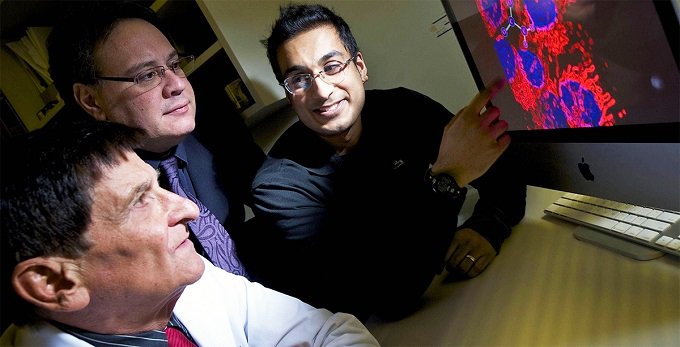Since 1973 Sodium Dichloroacetate (DCA) was used to treat various mitochondrial disorders. It inhibits the activity of pyruvate dehydrogenase kinase, and reduces the accumulation of lactate in body tissues. Its usage for treating lactic acidosis has been successful and is still continued to this day, it is used in several research and medical centers in the United States and Canada.
The majority of the people who have used DCA are children with congenital mitochondria disorders. The use of the drug could resume the normal function of the cellular enzymes and prevent further neurological damage, mental disability, microcephaly, blindness and movement disorders. Dichloroacetate’s safety has been confirmed long before the idea, that it could be helpful for someone who has cancer.

The Warburg Effect and DCA’s Mechanism
In 1920s German biochemist Otto Warburg found abnormalities in metabolism in cancer cells. Normal cells obtain energy by glucose oxidation, which requires the presence of oxygen. Cancer cells depend on glycolysis to obtain energy, and it can occur without the presence of oxygen, but is dependent on the availability of sugar. Cancer cells favor glycolysis even in the presence of adequate oxygen for oxidative phosphorylation, leading to a voracious appetite for glucose. This phenomenon prompted Warburg to propose that mitochondrial malfunction was the primary cause of cancer. Sodium Dchloroacetate (DCA) works by inhibing the
“Warburg Effect”.

DCA forces cancer cell to abandon its preferred metabolic process and also induces apoptosis, or cellular suicide. The reason cancer is so fast growing is that the mitochondria have been deactivated, so the cells evade apoptosis and are able to grow in the absence of oxygen. DCA reverses this. In effect, DCA directly causes cancer cell apoptosis and works synergistically with other cancer therapies.
Sodium Dichloroacetate History Turning Point – Research on DCA’s Efficacy in Cancer Treatment
• In 2007 dr. Evangelos Michelakis of the University of Alberta in Canada published a research paper that renewed interest in DCA. It showed potential of DCA to shrink cancer tumors. In the study DCA was administered to rats with transplanted tumor cells (brain, breast and lung). DCA killed cancer cells without affecting healthy cells. The rats’ tumors decreased by up to 70 percent in three weeks of DCA treatment:
A Mitochondria-K Channel Axis Is Suppressed in Cancer and Its Normalization Promotes Apoptosis and Inhibits Cancer Growth
Other researchers have followed and confirmed anti-cancer effects of DCA. Yet most of the studies have been done on cell cultures in the lab, and not on the cancer patients themselves. But results are very consistent, suggesting DCA is effective against a wide variety of cancer types.
DCA Clinical Trials and Promising Results
• In 2013, Phase 1 clinical trial of dichloroacetate (DCA) was completed in Canada. It showed that DCA is feasible and well tolerated in patients with recurrent malignant gliomas and other tumors metastatic to the brain using the dose range established for metabolic diseases:
Phase 1 trial of dichloroacetate (DCA) in adults with recurrent malignant brain tumors

• In another study, five glioblastoma multiforme patients were treated with oral DCA for up to 15 months. The research showed clinically promising results in four of the five patients:
Metabolic modulation of glioblastoma with dichloroacetate
Current Status and Future Prospects
• Medicor Cancer Center in Canada is a cancer clinic currently offering DCA therapy for it’s patients. It has published several case studies about the safety and effectiveness of DCA. Its real-world Observational DCA patient data is available to the public.
• Till this day, there are several ongoing clinical studies and a lot of pre-clinical research going on. Recently it has been noted that DCA can work by itself, however, it provides the maximal results in combination therapy with other drugs for a prolonged time period.
What is Dca I got liver cancer wood this help please